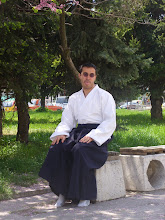b. Hence should you have the patience to read me trough you will understand why this made me extremely angry with the ministry and its language experts.
c. This post will therefore look at how different the co-relation between
truth-lie and
order-chaos are.
d. Lets start with the easy one – chaos is by principle lack of order and I intend to leave it there. What I am enthusiastically against is to call a lie lack of truth.
e. The question what is true has been haunted people for at least 10'000 years and there is no universal answer.
e1. while to call an object/subject which name has been linguistically codified by different name is incorrect that does not make it untrue. e.g. frog incorrectly mistaken to be a toads – the difference is not on taxonomic bases.

e2. many statements of personal believe could not be verified at this stage (e.g. I believe that there are alien civilizations somewhere in the galaxy) or not at all (e.g. Reincarnation)
e3. many statements may be untrue, but that to be unknown to their authors (e.g. when Ptolemy says that the Earth is the centre of the universe) or to us.
e4. in many cases truth is subjective (e.g. It's cold outside)
e5. my kind reader could continue the list, but the point is the inherent uncertainty about the truthfulness of any statement/fact/observation.
f. Second important point I wish to underline is the difference between untrue and lie.
f1. every lie is created for the attention of someone, hence its purposeful. The Middle-ages' believe that stench keeps illnesses away is untrue, but it is not purposefully incorrect.
f2. because the lie is purposeful it needs to be plausible, hence it is (more or less) structured to take the environment under account. Untrue statements (as well as the true ones) need not be (e.g. All sheep in Scotland are white)

g. So far I have suggested that lies are purposeful structuring of fact, where the resulting statement/conclusion is untrue (would be ironic if I lie to you at the moment, wouldn't it), therefore it is not at all chaotic - with lack of order.
g1. Evidently lie is not lack of truth as well (e., f.)
g2. Should I explore the possibility of order-chaos (lack of order) relation to resemble lie (structured) – truth, I should note the truth is not necessary unstructured (lack of structure), nor it is necessary green, or heavy. Therefore such approach is linguistically illogical.
i. In my opinion the experts in the ministry have decided that lie is lack of truth. What they do is replicate one-sided, narrow-minded approach to both language and the truth itself. Developing and encouraging oversimplifications in speech and thinking among children is not in their best interest. The arrogance of the language experts who take nominative determinism approach toward the language, try to change it and teach it this way in schools is infuriating.
j. thank you for reading this one-sided, narrow0minded post that tries to replicate my approach in others.
